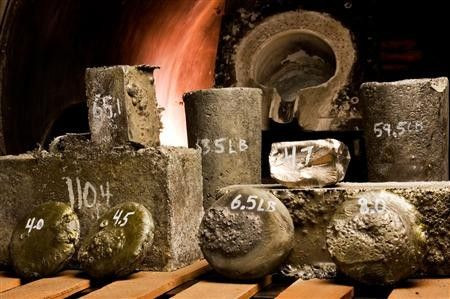EU looks for alternative sources of rare earth minerals

The European Union is attempting to find alternative sources of rare earth mineral after China's exports of the mineral fell drastically last month.
The European Commission intends to propose more bilateral trade agreements and investment in infrastructure in Africa as a means to increase alternative sources of rare earth minerals, the New York Times reported on Thursday.
The measures were outlined in a strategy paper for raw materials by the commissioner for industry and entrepreneurship, Antonio Tajani, the paper reported.
The Commission is looking to access more rare earth minerals through free trade agreements with countries in Central and Latin America, as well as trade negotiations with India, Canada, Russia and other countries in the region.
Rare earth, which is a collection of seventeen chemicals, is crucial for the manufacturing of various technological devices including cellphones and other gadgets.
Though the mineral is available all around the world, there are very few places where it is available in sufficient quantities to keep the mining costs low enough.
China, which mines more than 90 percent of the world's rare earth, suspended shipments of the mineral to EU and US in October, media reports stated. The suspension came after there were indications that the US would investigate if China was violating World Trade Organization rules by subsidizing clean energy exports and limiting clean energy imports.
The investigation would look into China's reduction of rare earth export quotas since 2005, which would be seen as an attempt to ensure more manufacturing on high-technology goods in the region by other companies.
Demand for the mineral is expected to increase more than twentyfold by 2030, the commission said.
China has been reducing export quotas of rare earth minerals for the past few years, citing environmental concerns. However, Wang Caifeng, who is in charge of setting up the China Rare Earth Industry Association, stated that China might raise the production cap and export quota slightly next year.
China's strategy of using the rare earth mineral as a political weapon has prompted countries to look beyond the Orient for other sources. Australia and Africa are among some of the most favored and cost-effective regions for mining the minerals currently.
The paper by the Commission notes that African countries suffer from a lack of transport, energy and environmental infrastructure, which prevents them from exploring the potential mineral wealth, NYT reported.
The EC and the European Investment Bank could cooperate with African countries to develop projects to improve the supply of raw materials, the paper said.
Japan, which is the largest consumer of rare earth after China, and Australia have also signed a deal, according to which Australian foreign minister Kevin Rudd assured long-term supply of the country's rare earth minerals to Japan.
The mineral is being included under the free trade pact currently under negotiation between the two countries. Lynas Corp, an Australian minerals explorer and Sojitz Corp, a trading house, are responsible for the supply of the mineral to Japan.
As Australia, Africa and other regions begin increasing their production as a defense to China's restrictions, price wars are expected to heat up, along with heavy investment into the area.
© Copyright IBTimes 2024. All rights reserved.





















